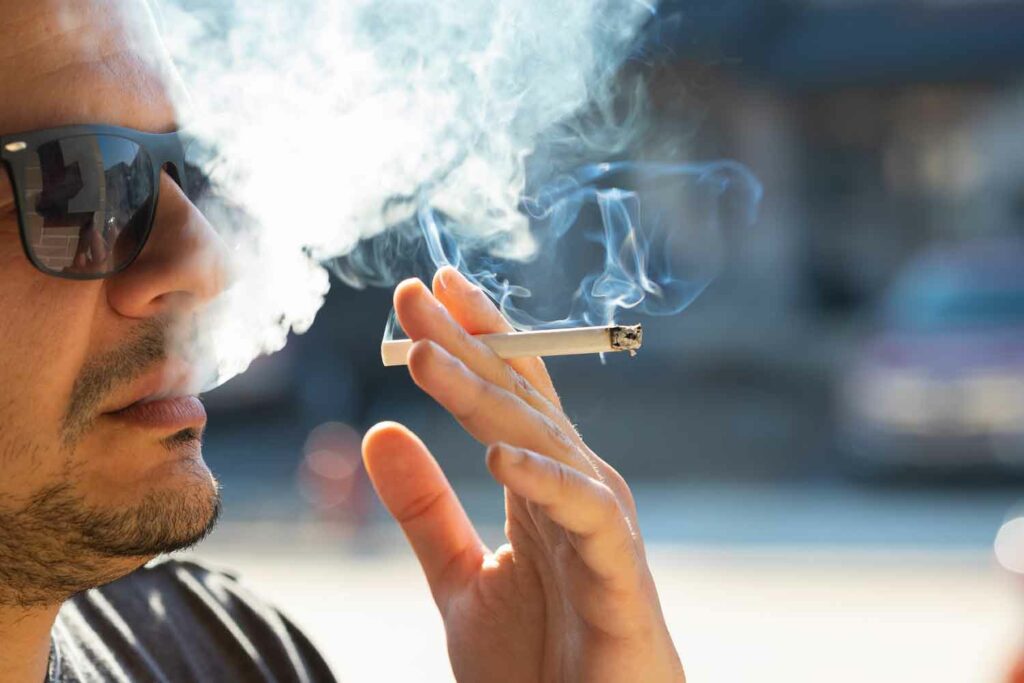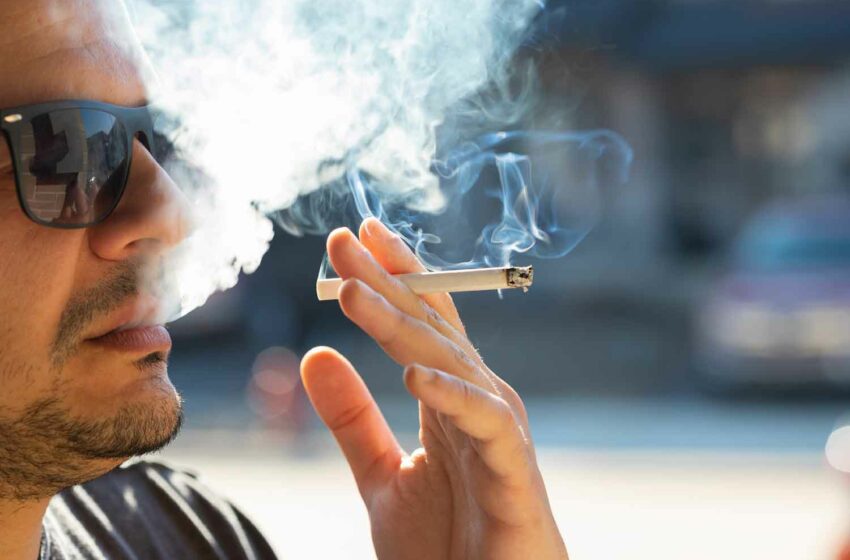
Concern about secondhand smoke does not warrant Britain’s generational tobacco ban.
By Charles Amos
In recent weeks, I have spoken to hundreds of people about the British government’s plan to ban the sale of tobacco to anyone born after 2009. Most of the responses in favor of it I expected to hear; however, I was surprised at the number of occasions people brought up secondhand smoke as a sufficient reason for prohibition—very often, though this argument was raised only after I had undermined their claim that smoking costs the government lots of money and after I had pointed out the paternalism that was typically their initial justification. Given the propensity of the public to fall back on this point, it is important that it is rebutted.
A main reason why people object to secondhand smoke is that it is inflicted upon them without their choice. When allied to the idea that it is harmful, many will invoke John Stuart Mill’s harm principle—the idea that the only justification for limiting individual liberty is to prevent harm to others—to justify the tobacco ban. The cost of secondhand smoke has been estimated to be in the region of £700 million ($882.72 million) by Policy Exchange. Nonetheless, the overwhelming majority of this cost evades the central reason people oppose secondhand smoke because it comes from the earlier death of partners or visitors of smokers who choose to be with them. Now relative to smokers not smoking, these partners and visitors are worse off; this worsening can hardly warrant prohibiting smokers from smoking though. Relative to her nephew putting up a handrail on the stairs, a doddery aunt is worse off without it; are we to require he puts up the handrail? No. Hence, it must be admitted that making someone worse off relative to the best situation for them cannot warrant forcing people to provide this best situation.
Given that we have disposed of the overwhelming majority of the cost of secondhand smoke, we can now focus on the life lost due to the unchosen inhaling of secondhand smoke alone, e.g., when walking past a smoker on the street. Assuming 10 or so occasions in which secondhand smoke is inhaled at a hundredth of the strength of a puff inhaled by the smoker himself gives an annual figure of about 6 seconds lost, or about 2 pence of cost. This is almost certainly an overestimate too; indeed, the first person to publish research on the link between primary smoking and lung cancer, Richard Doll, said, “The effects of other people smoking in my presence is so small, it doesn’t worry me.” Health studies have affirmed this verdict: In 1998, a seven-year study by the World Health Organization found no statistically significant link between secondhand smoke, importantly, including of the chosen type, and lung cancer, and a 2002 study by the Greater London Assembly similarly found the impact of secondhand smoke to be minuscule too.
I suspect there will remain those who will still argue that smokers have no right to impose any costs on them whatsoever—and that, hence, smoking should still be banned. This moral reasoning proves too much. If it is accepted, a couple of pence of expected cost, at most, warrants restricting public smoking; analogously, it warrants banning driving, barbequing and coughing in public too, for all of these impose similar or greater costs as well. As English judge Baron Bramwell argued in the Bamford v. Turnley court case of 1862, concerning the passage of smoke over property lines, justice should accept “a rule of give and take, live and let live.” Either that or our moral license to do anything would be seriously limited. Even Mill claimed only harms “without justifiable cause” can be prohibited, and surely, living life is as justifiable a cause as any other.
At this point, it may be argued that the difference between driving, which exposes people to smoke and the risk of a fatal accident, is that drivers pay their way via fuel duty while smokers do not pay their way via tobacco duty. This is false. As Christopher Snowdon and Mark Tovey have found, smokers contribute about £9 billion in tobacco taxes and save the taxpayer another £10 billion in reduced pension and healthcare costs while their cost in healthcare, litter collection and putting out fires only comes to £4.6 billion, meaning, when we include the estimate of £700 million for secondhand smoke—which is a vast overestimate of the relevant figure—we still find smokers save society about £14 billion a year.
Plus, it’s pretty rich to ban smoking rooms in pubs and restaurants, where smokers literally internalized their negative externalities, and then, when smokers revert to smoking outside and impose a minuscule externality as a result, to use this minuscule externality as a justification to ban smoking altogether. In reality, it points to the fact that the war on smokers has never really been motivated by stopping harms to others; rather, it has been motivated by an intolerance of smoking itself. And, of course, this whole article has ignored the fact that secondhand smoke in public places can never warrant banning smoking in private places anyway.
In sum, anyone who accepts that people should be free to drive, barbeque or cough in public must, by the same reasoning, accept that people should be free to smoke in public too. Ultimately, the only reason the public revert to opposing smoking on the basis of the tiny cost of secondhand smoke is their main arguments have failed. Yet even their argument of last resort fails, and with it goes any last justification for the tobacco ban. If people really want to defend the tobacco ban, they should be honest and give their real justification alone, that is: “We’re happy to push people about for their own good.” A questionable justification at best.


